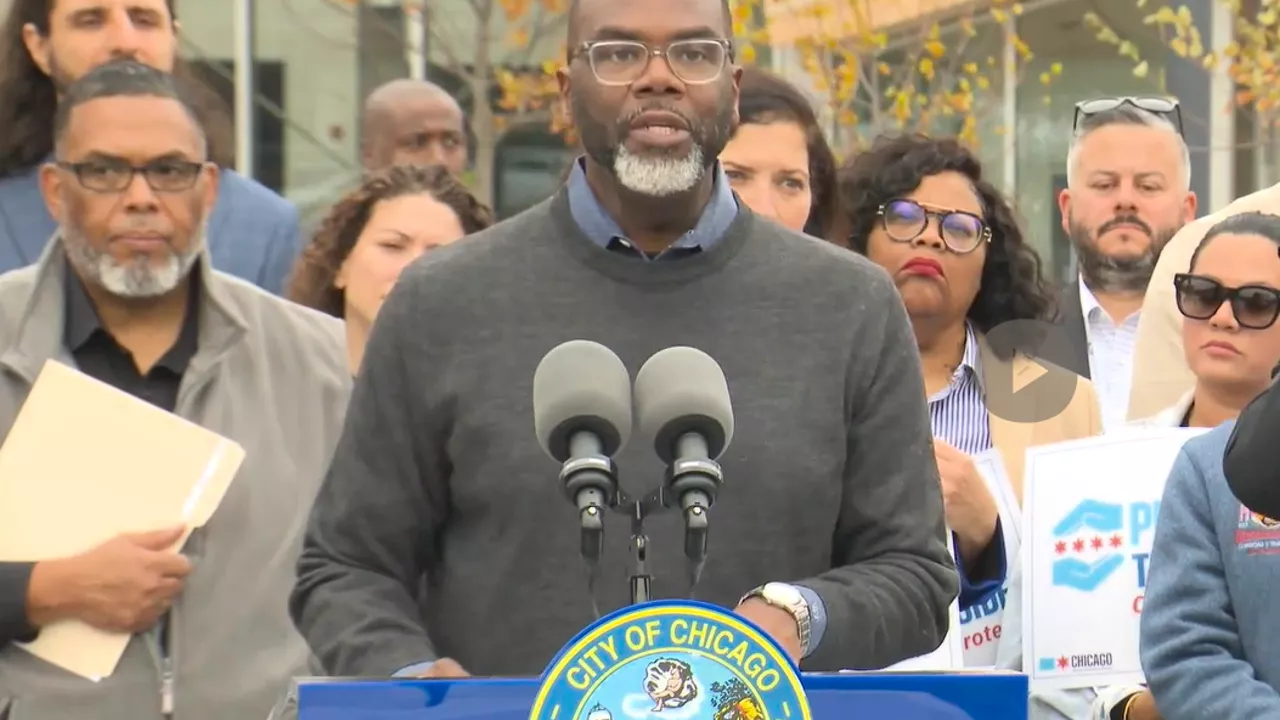Chicago Mayor Brandon Johnson has taken decisive action to combat food insecurity in the city by signing an executive order that allocates additional resources to local organizations. This order comes in response to challenges arising from the recent federal government shutdown, which paused Supplemental Nutrition Assistance Program (SNAP) benefits and introduced new eligibility rules.
The executive order, signed on Saturday, aims to direct support to community organizations, non-profits, food pantries, and faith-based institutions that assist individuals facing food shortages. These efforts are particularly critical following the announcement by the Illinois Department of Human Services (IDHS) that full SNAP benefits will be restored after the 43-day federal shutdown. IDHS anticipates that all recipients will receive their complete benefits for November by November 20, 2023.
Changes to SNAP eligibility will take effect on December 1, 2023. Under new legislation passed on July 4, 2023, individuals aged 18 to 64 will be required to work or volunteer at least 80 hours per month, or engage in designated training or educational programs to qualify for SNAP benefits. This marks a significant shift from previous regulations, which exempted certain groups, including parents of dependents under 18, veterans, young adults raised in foster care, and individuals experiencing homelessness.
Under the new law, immigrants with humanitarian protections, such as refugees and victims of violence, are excluded from receiving SNAP benefits. However, non-citizens who qualify include green card holders residing in the U.S. for at least five years, specific Cuban and Haitian entrants, and individuals living under a Compact of Free Association.
Mayor Johnson emphasized the necessity of this executive order to bridge funding gaps that may arise from the upcoming changes in SNAP eligibility. “We cannot accept Chicagoans going hungry as a result of the Trump administration’s war on poor and working people,” Johnson stated. He highlighted that while the immediate focus has been on the funding void created by the government shutdown, a more enduring crisis looms due to cuts included in previous legislation.
The order also seeks to support local businesses, particularly independently-owned retailers and restaurants, which are facing challenges from reduced SNAP purchasing power and decreased foot traffic stemming from heightened immigration enforcement. Johnson noted the dual pressures these establishments are under, exacerbated by increasing requests for free and donated goods.
To monitor the situation, the Mayor’s office, in collaboration with the Department of Public Health and the Department of Family & Support Services, will produce weekly reports assessing the impact of these changes on the community. “It’s our responsibility to ensure that our families and communities receive the support and stability they need,” Johnson added.
As the city prepares to navigate these new regulations and their implications for food security, the executive order serves as a proactive measure to ensure that vulnerable populations receive the assistance they require. For ongoing updates and more information, residents can visit the IDHS website at dhs.state.il.us.
